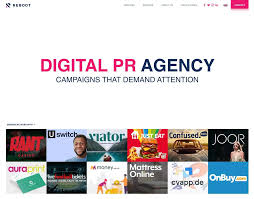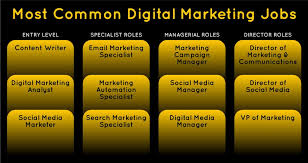Unlocking Success: Harnessing the Power of the Best PR Strategies
The Power of Public Relations: Achieving Success with the Best PR Strategies
Public Relations (PR) plays a crucial role in shaping the reputation and perception of a brand or company. Effective PR strategies can help businesses build credibility, establish trust with their audience, and ultimately drive success.
So, what makes for the best PR strategies? Here are some key elements:
Clear Communication
Clear and concise communication is at the heart of successful PR. It is important to convey your message in a way that resonates with your target audience and aligns with your brand values.
Building Relationships
Building strong relationships with media outlets, influencers, and stakeholders is essential for effective PR. By nurturing these relationships, you can amplify your message and reach a wider audience.
Storytelling
Compelling storytelling is a powerful tool in PR. By crafting engaging narratives that connect with your audience on an emotional level, you can make a lasting impact and differentiate your brand from competitors.
Crisis Management
No business is immune to crises. The best PR strategies include robust crisis management plans that enable companies to respond swiftly and effectively in times of trouble, protecting their reputation and maintaining public trust.
Data-Driven Approach
Data analytics play an increasingly important role in modern PR strategies. By leveraging data insights, businesses can measure the impact of their PR efforts, identify areas for improvement, and make informed decisions to drive success.
In conclusion, implementing the best PR strategies is essential for businesses looking to enhance their reputation, engage with their audience effectively, and achieve long-term success. By focusing on clear communication, relationship-building, storytelling, crisis management, and data-driven approaches, companies can harness the power of public relations to elevate their brand presence in today’s competitive market.
Top 8 Advantages of Premier Public Relations for Brands
- Enhances brand reputation and credibility
- Builds trust with target audience
- Increases brand visibility and awareness
- Helps manage and mitigate crises effectively
- Strengthens relationships with media and influencers
- Drives positive public perception of the brand
- Differentiates the brand from competitors
- Generates valuable media coverage and publicity
Top 5 Drawbacks of Best Public Relations Practices
- Costly investment
- Time-consuming
- Not guaranteed success
- Reputation risks
- Dependency on external factors
Enhances brand reputation and credibility
One of the key advantages of implementing the best PR strategies is that it enhances brand reputation and credibility. By effectively managing public perception and communicating transparently with stakeholders, businesses can build trust and establish a positive image in the eyes of their target audience. A strong brand reputation not only attracts customers but also fosters loyalty and advocacy, ultimately contributing to long-term success and sustainable growth.
Builds trust with target audience
Building trust with the target audience is a fundamental advantage of implementing the best PR strategies. By consistently delivering transparent and authentic communication, businesses can establish credibility and foster a strong bond of trust with their audience. This trust forms the foundation of lasting relationships, leading to increased loyalty, positive brand perception, and ultimately, improved business success. Effective PR that focuses on building trust can help companies connect with their audience on a deeper level, driving engagement and loyalty in the long run.
Increases brand visibility and awareness
One significant advantage of implementing the best PR strategies is the notable increase in brand visibility and awareness. Through strategic communication efforts, businesses can enhance their presence in the market, reaching a wider audience and solidifying their brand identity. By securing media coverage, engaging with influencers, and crafting compelling narratives, companies can effectively raise awareness about their products or services, ultimately strengthening their position in the minds of consumers. This heightened visibility not only attracts new customers but also reinforces brand loyalty among existing ones.
Helps manage and mitigate crises effectively
One of the key advantages of implementing the best PR strategies is the ability to effectively manage and mitigate crises. By having a well-thought-out crisis communication plan in place, businesses can respond promptly and strategically to unexpected challenges, protecting their reputation and maintaining trust with stakeholders. Through transparent and proactive communication during times of crisis, companies can navigate difficult situations with resilience and professionalism, ultimately emerging stronger on the other side.
Strengthens relationships with media and influencers
One significant advantage of implementing the best PR strategies is that it strengthens relationships with media outlets and influencers. By fostering positive connections with key media contacts and influential figures in the industry, businesses can enhance their brand visibility, credibility, and reach. Building strong relationships with the media and influencers can lead to valuable opportunities for coverage, endorsements, partnerships, and collaborations, ultimately helping companies to amplify their message and engage with their target audience more effectively.
Drives positive public perception of the brand
One of the key advantages of implementing the best PR strategies is their ability to drive a positive public perception of the brand. By effectively managing communication and storytelling, businesses can shape how they are perceived by their target audience and stakeholders. Building a strong and favourable brand image through PR efforts can enhance credibility, trust, and loyalty among consumers, ultimately leading to increased brand recognition and competitive advantage in the market.
Differentiates the brand from competitors
One significant advantage of implementing the best PR strategies is that it effectively differentiates the brand from competitors. By crafting compelling narratives, engaging with the audience authentically, and showcasing unique brand values through strategic communication, businesses can establish a distinct identity in the market. This differentiation not only helps in capturing the attention of potential customers but also builds a strong brand reputation that sets the company apart from its competitors, ultimately leading to increased brand loyalty and market success.
Generates valuable media coverage and publicity
One of the key advantages of implementing the best PR strategies is the ability to generate valuable media coverage and publicity for a brand or company. By effectively engaging with journalists, influencers, and media outlets, businesses can secure positive press coverage that enhances their visibility, credibility, and reputation. This increased media exposure not only helps in reaching a wider audience but also builds trust and authority within the industry, ultimately contributing to the overall success and growth of the organisation.
Costly investment
One significant drawback of implementing the best PR strategies is the costly investment involved. For small businesses operating with limited budgets, the expense of executing top-tier PR campaigns can pose a significant challenge. From hiring experienced PR professionals to investing in media placements and strategic communication tools, the financial burden of maintaining a competitive PR presence can be daunting. This financial barrier may hinder smaller companies from fully leveraging the benefits of effective public relations and reaching their communication goals within budget constraints.
Time-consuming
One significant drawback of implementing the best PR strategies is the time-consuming nature of developing and executing effective PR campaigns. Crafting compelling narratives, building relationships with media outlets, monitoring public perception, and managing crises all demand a considerable amount of time and effort. This can potentially divert resources and attention away from other critical business activities, impacting overall productivity and efficiency. Balancing the demands of comprehensive PR initiatives with the need to focus on core business operations can present a challenge for organisations seeking to maximise their PR impact while maintaining operational effectiveness.
Not guaranteed success
One significant drawback of even the best PR strategies is the lack of guaranteed success. Despite meticulous planning, thorough implementation, and strategic execution, there is no assurance that PR efforts will consistently deliver the desired results or outcomes. External factors, changing market dynamics, unforeseen events, or shifts in public perception can all influence the effectiveness of PR campaigns. This inherent unpredictability underscores the importance of continuous evaluation, adaptation, and flexibility in navigating the ever-evolving landscape of public relations.
Reputation risks
In the realm of Public Relations, one significant drawback is the looming reputation risks that businesses face. In today’s fast-paced digital landscape, even a minor misstep in PR can trigger a chain reaction of detrimental consequences for a company’s reputation and brand image. With information spreading rapidly across online platforms, maintaining a positive public perception requires constant vigilance and strategic communication to mitigate potential damage from any negative publicity.
Dependency on external factors
The dependency on external factors is a significant con of implementing the best PR strategies. Despite meticulous planning and execution, the success of PR efforts can be greatly influenced by external variables beyond the control of the business. Market trends, competitor actions, or unforeseen events can impact the effectiveness of PR campaigns and messaging, potentially derailing the desired outcomes. This inherent vulnerability to external forces highlights the need for businesses to remain agile and adaptable in their PR approach, ready to pivot and adjust strategies in response to changing circumstances to mitigate risks and maximise opportunities.












